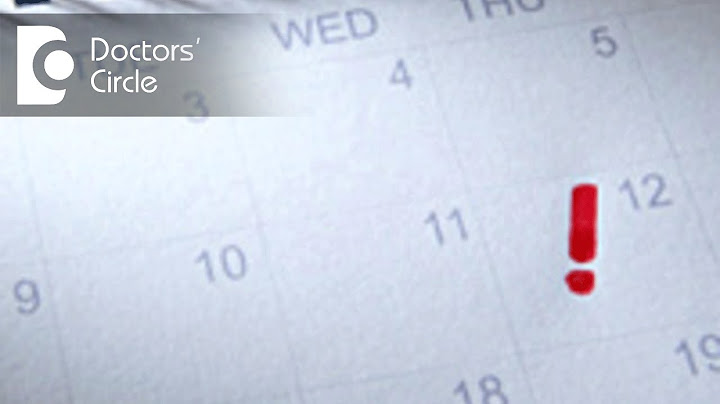Going off of the pill so you can start trying to get pregnant? Here’s what you can expect as your hormones return to normal. Show Whether you’ve been on the pill for one year or 20 years, you’re bound to notice a few changes when you stop taking it. The good news is that your fertility will likely return quickly, so you could potentially conceive right away. How long does it take to get pregnant after going off the pill?You can get pregnant within a month of quitting the pill, whether you’re taking combined hormone pills, which contain both estrogen and progestin, or progestin-only pills, says Nicole Todd, an OB-GYN at BC Women’s Hospital + Health Centre and Vancouver General Hospital.  You can stop taking the pill at any point in the pack. If you’ve been taking combined hormone pills, which thicken your cervical mucus and change your uterine lining while preventing ovulation, you could start ovulating again one week after quitting. Depending on the length of your cycle, you could start developing an egg a week after, which would be released about a week after that. If you time things right, you could potentially conceive two weeks after giving up the pill. But Todd notes that waiting a month before trying to conceive will make it easier to date your pregnancy because you’ll know the timing of your last period. If you’ve been taking progestin-only pills, which thicken your cervical mucus and thin your uterine lining (and sometimes halt ovulation), where you are in your cycle will determine when you’ll be able to conceive. Progestin-only pills are very sensitive, so you’ll need to take them at the same time every day or your cervical mucus will begin to thin. That means, once you go off the pill, your cervical mucus will quickly return to normal, making it easier for sperm to reach the egg. If you’re ready to release an egg just after you stop the pill, you could potentially get pregnant very quickly. This return to fertility is similar to most types of contraception, such as contraceptive patches and vaginal rings (which contain the same hormones as combined hormone pills) and even intrauterine devices (IUDs). But quitting the pill offers a faster return to fertility than Depo-Provera, a progestin-containing birth control method that’s injected every three months. “That one can take anywhere between six months and one year for ovulation to return,” explains Todd, as the medication may work its way out of a person’s system more slowly. However, not everyone’s period will return right after stopping birth control, says Yolanda Kirkham, an OB-GYN at Women’s College Hospital and St. Joseph’s Health Centre in Toronto. Though being on the pill—even for a prolonged period of time—isn’t related to reduced fertility, any issues you had before you started the pill, such as infrequent periods and polycystic ovary syndrome, will continue to affect your fertility after you quit. Also, if you’ve been on the pill since you were 15 and you’re now 35, your fertility will have naturally declined with age. Women who are on a severely low-calorie diet may also not get periods, says Kirkham. What are the side effects of going off the birth control pill?“When you go off the birth control pill, your hormones will come back within one to two weeks,” says Todd. “Some people may experience irregular spotting and a return to premenstrual syndrome [PMS] symptoms, such as bloating, breast tenderness and mood fluctuations.” Because your hormones are now able to operate in a normal cyclical fashion, many of the symptoms you had before going on the pill may return. If you decided to take the pill to help with acne, you could see that skin condition return. If you had heavy periods and cramping before, those symptoms are likely to come back as well. For some women, the birth control pill can reduce their libidos, so going off the pill could cause your sex drive to increase to pre-pill levels. A common misconception is that going off the pill will lead to weight changes, but that’s not likely to happen, says Todd and Kirkham. If you are in your 40s when you stop taking combined hormone pills, you may notice that your premenstrual and ovulation symptoms are stronger than they were before. That’s because PMS symptoms tend to be stronger in the teen and premenopausal years. If you’re struggling with any new symptoms, talk to your doctor. Read more: How fertile are you after stopping birth control?They contain both estrogen and progestin (synthetic progesterone). You can get pregnant right away after you stop regular-dose or low-dose hormonal birth control. About half of women get pregnant in the first 3 months after stopping the pill. Most women get pregnant within 12 months after stopping the pill.
How quickly can you get pregnant after coming off the pill?You can get pregnant as soon as you come off the pill, so it's important to use another form of contraception, such as condoms, straight away. If you want to get pregnant, it's a good idea to plan for pregnancy before you stop taking the pill.
Are you most fertile right after stopping the pill?The pill has no impact on your fertility — it just might take a couple of months for your cycle to get back to normal. You may or may not get pregnant during the first cycle after you stop the pill.
|

Related Posts
Advertising
LATEST NEWS
Advertising
Populer
Advertising
About

Copyright © 2024 paraquee Inc.


















